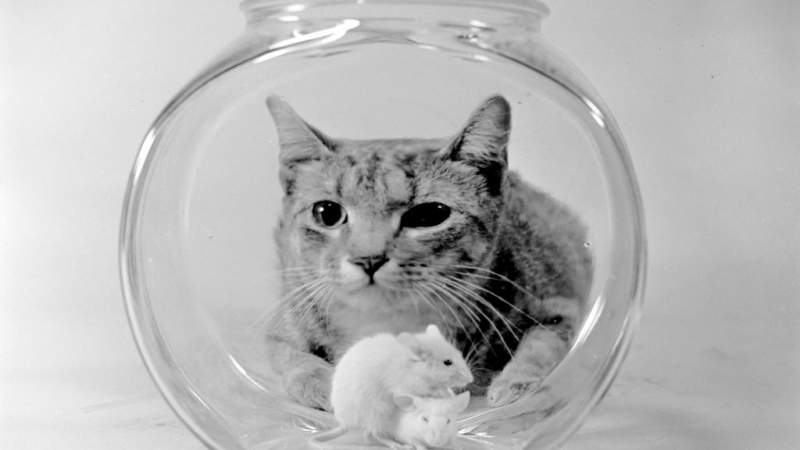These scientists are building a cat database to understand why they act like that
Notice that quirky thing your cat always does?
Maybe it loses its mind when you try to eat a piece of whole wheat bread without sharing; races around the house at full speed after using the litterbox or perhaps insists on sitting in that one spot filled with delicate papers you’d rather they didn’t touch.
Over time, you’ve come to accept these unique characteristics of the various cats that share your life here on Earth. But scientists at the Broad Institute of MIT and Harvard, along with UMass Chan Medical School are working on the Darwin’s Cats project. Their goal is to build a comprehensive database that answers many questions about the behavioral and genetic traits of our friendly felines.
Listen to NPR’s Short Wave podcast for more discoveries, everyday mysteries and the science behind the headlines.
Three things to know:
- If this concept sounds familiar, it’s probably because the same company, Darwin’s Ark, previously conducted a similar project focused on dogs. For this iteration, volunteer cat owners will collect fur samples and mail them in, along with completing a series of surveys about their little fur babies’ behavior.
- The project aims to recruit 100,000 participating cats by June of 2026. Once the sample collection period is over, the researchers behind the Darwin’s Cats project will sequence the DNA of their sample population to investigate the genetic influences on various cat traits, behaviors and health issues.
- The goal, according to their website, is to build the largest database of feline behaviors and genetics to help answer many of our unanswered questions about cats. This includes insights into their physical traits, behavioral evolution, the health challenges our kitties faces and the factors contributing to those issues.
How do I sign up?
According to Darwin’s Ark, nearly 5,000 cats have been registered for the project since 2024.
Curious cat owners can sign up here, but it’s important to know that the organization requests a $15 donation per cat to help fund research and cover for the sequencing costs.
There’s still so much we don’t know about cats and their behaviors. For instance, why does my cat only care for whole wheat bread while ignoring white bread?
Hopefully, the pursuit of science will give us some real answers to real questions. Like why an internet-famous cat named Monkey has such a mischievous little smile.
I wake up to this sinister smile every morning pic.twitter.com/I5mnKVErbS
— oreo & monkey (@oreoeocat) February 1, 2025
More from NPR:
- Read more about what researchers learned from Darwin’s Dogs
- From A to Zika, get the latest global health and development news, sent weekly to your inbox, with the Goats and Soda newsletter.
Rideshare union rights, social media limits and other state laws taking effect Jan. 1
Every new year, public media reporters across the country bring us some of the new state laws taking effect where they are. Here are six in 2026.
Guides to help you tackle your New Year’s resolutions
From building your strength to tackling credit card debt, NPR's Life Kit has a newsletter journey to help you tackle your New Year's resolution.
Guides to help you tackle your New Year’s resolutions
From building your strength to tackling credit card debt, NPR's Life Kit has a newsletter journey to help you tackle your New Year's resolution.
Dozens presumed dead in fire at Swiss Alps bar during New Year’s celebration
Dozens of people are presumed dead and about 100 injured, most of them seriously, following a fire at a Swiss Alps bar during a New Year's celebration, police said Thursday.
Crypto soared in 2025 — and then crashed. Now what?
For most of 2025, cryptocurrencies such as bitcoin surged as President Trump vowed to make the U.S. a crypto leader. But now, a severe sell-off has shaken the sector.
Warren Buffett officially retires as Berkshire Hathway’s CEO
The legendary 95-year-old investor spent decades building his company into one of the world's largest and most powerful. Now Greg Abel is taking it over.






